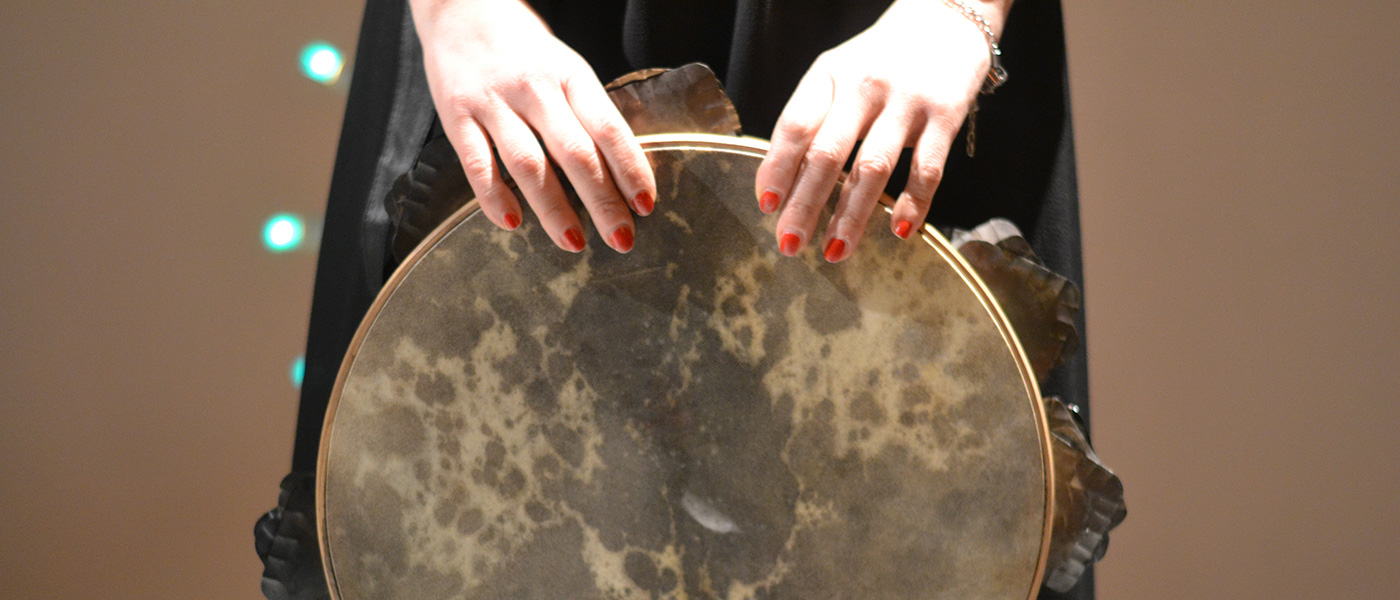

TAMBURREDDHU – Resistenza sonora Salentina
8 novembre > SALA 1 ore 17.30
Italy – 2020 – colore – 52’
CREDITS
Direction: Claudio “Cavallo” Giagnotti, Pierluigi de Donno
Story: Claudio “Cavallo” Giagnotti, Pierluigi de Donno, Francesco Mancini
Cinematography: Davide Micocci
Editing: Gigi de Donno, Davide Rizzo
Music: Mascarimirì
Cast: Claudio “Cavallo” Giagnotti, Anna Cinzia Villani, Mino Cavallino, Alessandro Schito “Scarpina”, Domenico Riso, Luigi Nuzzo, Carlo “Canaglia” De Pascali, Gigi Toma, Fiore Maggiulli, Enzo Greco, Alessio Gioia Gaballo
Producers: Claudio “Cavallo” Giagnotti, Francesco Mancini
Production: ARRA Produzioni Mediterranee, Black Sheep
SYNOPSIS
In Tamburreddhu, many of the most important traditional Salento music performers leave the lights of the stages and international world music festivals, where Salento music is now included in programmes along with genres such as Balkan, Flamenco or Cumbia, to offer a more intimate version of their performances, Uce e Tamburreddhu (Voice and Tambourine), singing and playing the main melodies handed down by the original singers whose performances were recorded in Salento by Lomax, De Martino and Carpitella in the 1950s.
Historical sources, archive footage and interviews add to a series of music video clips describing the tambourines, the techniques, the differences between the various types of Pizzica Pizzica music. The work is enriched by an interview with the last living elderly tambourine maker, revealing some details about handicraft making.
DIRECTOR’S STATEMENT
“We live in the present, therefore we should not preserve tradition and perpetuate it in a folkloric way, but make those craftsmanship improvements allowed by modernity. In my opinion, therefore, it is right that today’s tambourine makers, after analysing the instruments that tradition has preserved, have improved that handcrafted object, turning it into a true musical instrument.
This is exactly what my reflection wants to achieve: that is to say, to recognise the “Tamburreddhu instrument” not as a tourist object, but as the true emblem of the Salento tradition or, better, to reflect on why, for example, to play Flamenco you have to use the Flamenco guitar whereas to play Pizzica Pizzica any tambourine will do? In my opinion, it’s not really like that. What do you think?”
AWARDS AND FESTIVALS
2021 Womex – Worldwide Music Expo


